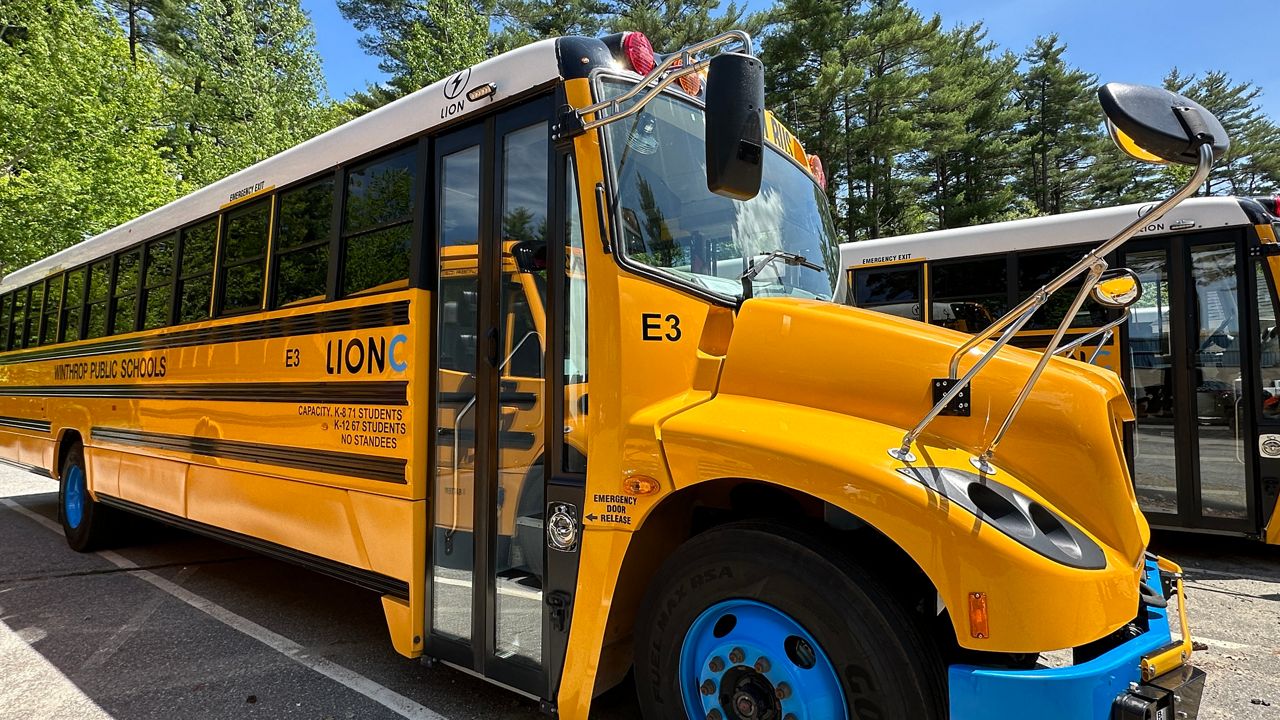When Winthrop schools got four electric buses last summer, they planned to use them for in-town routes and hoped they would help the district move away from diesel fuel.
The full-size yellow school buses that sell for $400,000 each came for free thanks to a federal grant. The district even got funds to install charging stations, said Superintendent James Hodgkin.
It seemed, at the time, like a low-risk venture that saved the district money and would help the environment.
But while two of the buses have been in service some of the time, two of them never worked well enough to transport students.
And just last week, all four of them failed a Maine State Police inspection, leading the school board to question whether the district should even continue to participate in the program at all.
“My board is getting a little leery of this whole process,” Hodgkin said Monday, noting that they’ve asked him to find out what happens if they don’t want to keep the buses.
Funding for the vehicles came through the U.S. Environmental Protection Agency’s Clean School Bus Program, which has made $5 billion available to schools across the country, according to the Maine Department of Education.
The state promotes the program as one way to help reach a goal set in state law that calls for 75% of the school buses in Maine to be all-electric by 2035.
In 2021, Mount Desert Island High School became the first in the state to use an electric bus, which was manufactured by Lion Electric Co., a Canadian manufacturer that also built the Winthrop buses.
A case study of the Mount Desert Island bus identified only one “out-of-service event” because of a fault in the air-ride suspension system.
Overall, the study found that the electric bus had significantly lower maintenance costs. Electric buses emit zero tailpipe emissions and improve air quality inside and outside the bus, the report states.
In Winthrop, Lion Electric has sent technicians to try to fix the buses, Hodgkin said. And while they’ve been “very responsive” in trying to help, they haven’t resolved the issues.
The company, which did not respond to a request for comment from Spectrum News, has paid for rental school buses and fuel to help Winthrop transport students while they trouble-shoot the problems, Hodgkin said.
During a school board meeting last week, Winthrop Transportation Director Josh Wheeler said the district recently got the buses back from the company after they were away for repairs for three months.
All four failed the state police inspection because of faulty emergency exits and electrical and heater failures, Wheeler said.
Moving forward, he put the company in contact with the state police inspectors to make sure everyone is on the same page.
And with the buses back in Winthrop, he tried to plug them in to charge them up — but two of the buses couldn’t take a charge.
He described to the board the frustration of continued glitches but said he still supports the underlying reason for switching to the cleaner buses.
“I think electric vehicles are wonderful,” he told the board. “I think this program is wonderful. I think all the efforts we’ve all put into this are great. Now it’s sort of at the point where, pardon the pun, but the rubber is hitting the road here and we’re going to have to make a decision on how best to proceed.”
Hodgkin said Monday that he’s optimistic the buses can still be fixed and he still believes that “electric vehicles are where things are heading.”
“I want people to know that our experience, while frustrating, hasn’t changed our commitment to electric buses,” he said.



